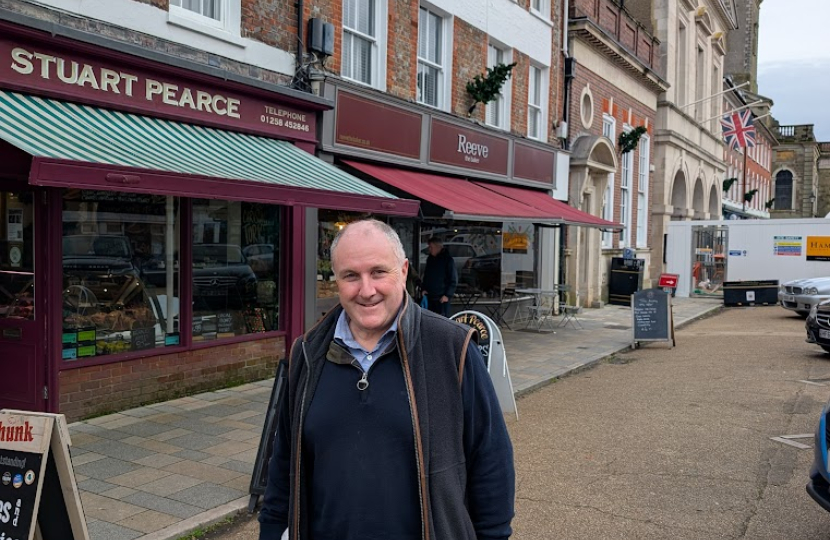
In this edition I want to try to cover three topics. The first one was going to concern the recent announcement by Lloyds Bank of the impending closure later this year of their branch in Blandford. This story is covered elsewhere in this edition. While it is true that we are going through a period of transition when it comes to how we do our banking, the creation on ‘banking deserts’ is in nobodies interest leading as it does to a disproportionately harder hit on my older constituents as well as having a greater impact on the vitality and viability of a rural market town over that felt in a large city. I am meeting Lloyds to learn more about their plans for community banking support and will be working alongside our local councillors to explore the provision of a banking Hub to meet the needs of Blandford and the villages it serves. More as it is known.
On the subject of fragility, I recognise the oftentimes marginal nature of our market towns as they face pressure from on-line sales. Car parking charges are too often used as a cash cow to be milked by councils. You maybe aware that Lib Dem controlled Dorset Council is pursuing a policy of introducing night time car parking charges. I am opposed to these and have made known by views to the Council Leader and in the House of Commons during a recent Business Question. Night time charges will hit local hospitality and leisure businesses across all of our North Dorset towns as well as impact negatively on local residents, for example in Blandford and Shaftesbury, who park their car in the evenings in car parks where there is a pressure on local on-street capacity. These cars are off to work etc before the next business day starts. This is not a good policy coming from County Hall and I would urge you to make your views known to the Council. From my inbox I know that many local residents and pubs are opposed to this plan. Let us hope that Lib Dem councillors listen.
My final fragility point is our basic functioning of democracy. A recent poll of GenZ (those born from 1997 – 2012) found that over 50% are in favour of turning the UK into a dictatorship! This follows on the back of polling undertaken by the Electoral Commission which found that the younger one is the more acceptable one finds the abuse of intimidation of political candidates and their supporters. I listened with interest to two GenZ men given their understanding as to why many of their cohort would support a British Dictatorship. The first I have some sympathy with – their call was for politicians to be bold and visionary and to take brave decisions. While I see their point they neglect, I fear, to comprehend the massively negative effect social media and the rise of populism has on achieving these policymaking umbrellas. A Parliamentary friend and colleague of mine Alec Shelbrooke has also commented in the media that people are likely to support a dictatorship only on the presumption that the dictator’s views align with their own. Pity them when they do not. The reason given if that there is a lack of knowledge, in the historical context, of what a dictatorship is. Indeed, one interviewee did not believe that Putin is a dictator. I find this hard to believe given the attention given in schools to the rise of Nazism. It also suggests a certain lack of intellectual curiosity of actually researching the historical examples of what one is calling for before actually calling for it. But there is a serious point which we cannot duck: we need to remind this and future generations of why democracy is the best option and why participation in it makes sense. All because we know it to be true does not mean that our successors will. The dictators of Europe, South America and Africa tell an all too clear picture. Everyone needs to see it, understand it and learn from it. We are doomed if they do not.

